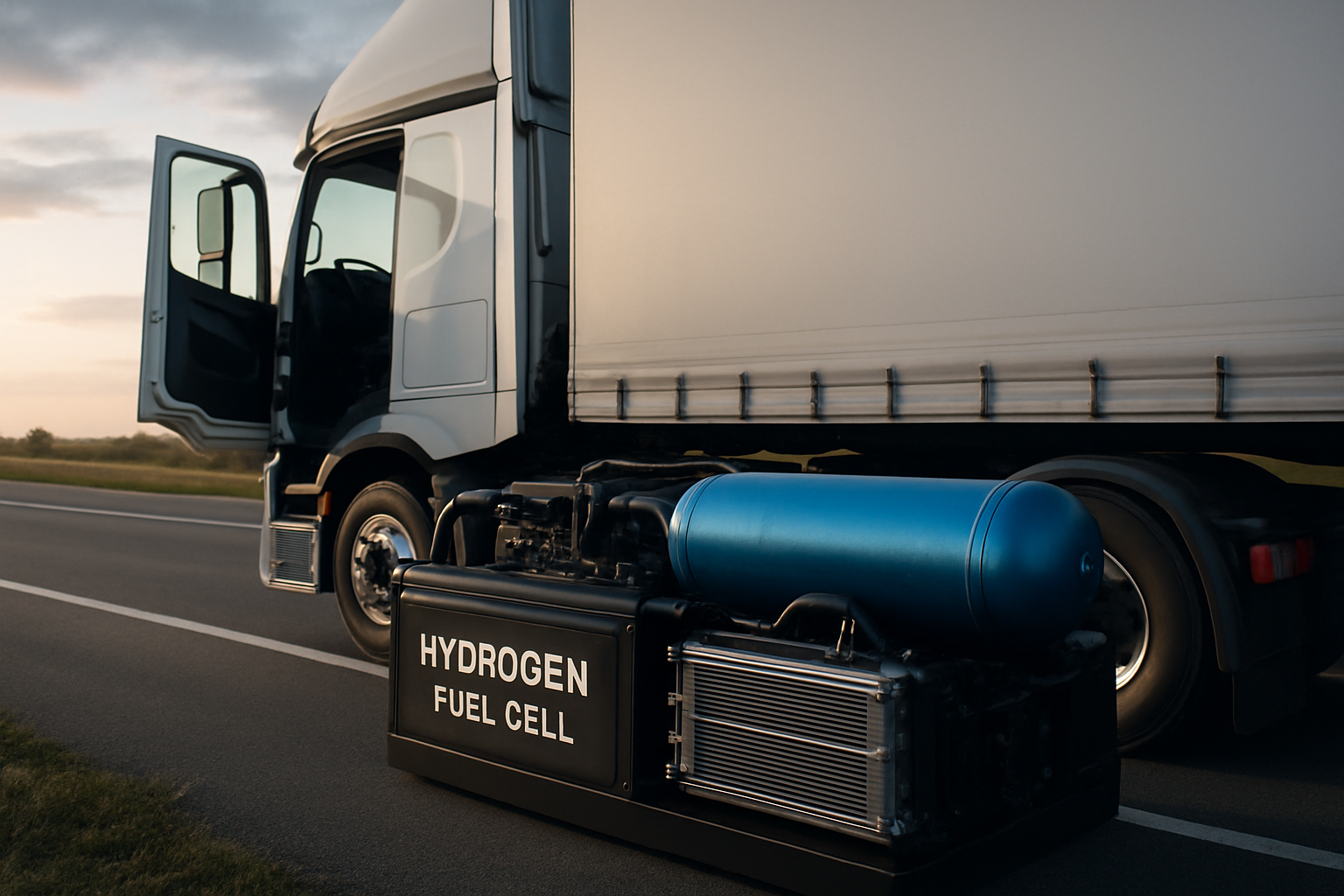Hydrogen Fuel Cells: The Untapped Potential in Commercial Trucking
In the world of heavy-duty transportation, a quiet revolution is brewing. Hydrogen fuel cell technology, long overshadowed by other alternative energy sources, is emerging as a promising solution for long-haul trucking. This innovative power source combines the environmental benefits of zero-emissions with the range and refueling speed of traditional diesel engines. As the trucking industry faces increasing pressure to reduce its carbon footprint, hydrogen fuel cells offer a compelling pathway to sustainable freight transport without compromising on performance or efficiency.

This process is not only clean but also highly efficient. Fuel cells can convert up to 60% of the energy in hydrogen to electricity, compared to the 20-35% efficiency of internal combustion engines. Moreover, hydrogen’s high energy density means that fuel cell trucks can achieve ranges comparable to their diesel counterparts, addressing one of the key limitations of battery-electric vehicles in long-haul applications.
Advantages for Commercial Trucking
The trucking industry stands to benefit significantly from hydrogen fuel cell technology. Unlike battery-electric trucks, which can take hours to recharge, hydrogen-powered vehicles can be refueled in minutes, minimizing downtime and maximizing productivity. This rapid refueling capability is crucial for fleet operators who rely on tight schedules and quick turnarounds.
Furthermore, hydrogen fuel cells maintain their performance in extreme temperatures and challenging terrains, making them ideal for diverse operating conditions. The technology’s scalability also allows for the powering of heavy-duty vehicles without the need for massive, weight-adding battery packs that can reduce payload capacity.
Infrastructure Challenges and Solutions
One of the primary obstacles to widespread adoption of hydrogen fuel cell trucks is the lack of refueling infrastructure. However, this challenge is being addressed through strategic partnerships between truck manufacturers, energy companies, and governments. Initiatives such as the European Hydrogen Backbone project aim to create a continent-wide network of hydrogen pipelines, while in North America, companies are establishing hydrogen corridors along major freight routes.
Innovative solutions are also emerging to overcome infrastructure limitations. Mobile refueling stations and on-site hydrogen production facilities using renewable energy are being developed to support early adopters and remote operations. These flexible approaches allow for the gradual scaling of infrastructure as demand grows.
Economic Feasibility and Cost Projections
While the initial cost of hydrogen fuel cell trucks is currently higher than traditional diesel vehicles, economies of scale and technological advancements are expected to drive prices down significantly in the coming years. Industry analysts project that the total cost of ownership for hydrogen trucks could reach parity with diesel by 2030, factoring in lower maintenance costs and potential carbon pricing mechanisms.
Government incentives and subsidies are playing a crucial role in accelerating adoption and infrastructure development. Countries like Germany, Japan, and South Korea have implemented ambitious hydrogen strategies that include substantial funding for research, development, and deployment of fuel cell technologies in the transportation sector.
Environmental Impact and Sustainability
The environmental benefits of hydrogen fuel cell trucks are substantial, particularly when the hydrogen is produced using renewable energy sources. Green hydrogen, generated through electrolysis powered by wind or solar energy, offers a truly zero-emission solution from well to wheel. This aligns perfectly with global efforts to decarbonize the transportation sector, which accounts for a significant portion of greenhouse gas emissions.
Moreover, hydrogen production can serve as a valuable energy storage mechanism, helping to balance grid loads and utilize excess renewable energy that might otherwise be curtailed. This synergy between the energy and transportation sectors could accelerate the transition to a more sustainable and resilient energy system.
Real-World Applications and Pilot Projects
Several major truck manufacturers have already launched hydrogen fuel cell prototypes and are conducting extensive real-world trials. Companies like Hyundai, Toyota, and Nikola are at the forefront of this technology, with vehicles demonstrating impressive performance metrics in terms of range, payload capacity, and reliability.
In Europe, the H2Haul project is deploying fuel cell trucks across Belgium, France, Germany, and Switzerland, providing valuable data on operational performance and refueling logistics. Similarly, in the United States, the Port of Los Angeles is testing hydrogen-powered drayage trucks to reduce emissions in one of the busiest freight hubs in North America.
These pilot projects are not only validating the technology but also helping to identify and address practical challenges in implementation, from driver training to maintenance protocols.
The Road Ahead: Challenges and Opportunities
As with any emerging technology, hydrogen fuel cells face several hurdles on the path to widespread adoption in the trucking industry. These include the need for further cost reductions in both vehicle production and hydrogen fuel, the expansion of refueling infrastructure, and the development of standardized safety regulations.
However, the potential benefits – from environmental sustainability to operational efficiency – are driving continued investment and innovation in the field. As governments worldwide tighten emissions regulations and set ambitious climate targets, hydrogen fuel cell technology is poised to play an increasingly important role in the future of commercial trucking.
The transition to hydrogen-powered freight transport represents more than just a technological shift; it’s a reimagining of how goods can be moved across continents with minimal environmental impact. As research progresses and real-world applications expand, hydrogen fuel cells are set to become a cornerstone of sustainable logistics, offering a clean, efficient, and powerful solution for the long-haul trucking industry of tomorrow.





